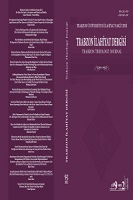Islam Ceza Hukuku ile Çağdaş Ceza Hukukundaki Kusur İlkesinin Mukayesesi
Comparison of the Principle of Culpability in Islamic Criminal Law and Contemporary Criminal Law
Author(s): Abdulmuid AykulSubject(s): Criminal Law, Islam studies, Sharia Law, Qur’anic studies
Published by: Karadeniz Teknik Üniversites - İlahiyat Fakültesi
Keywords: İslamic Law; İslamic Criminal Law; Principle of Culpability; Intent; Negligence;
Summary/Abstract: The principle of fault, which is accepted as one of the important principles of contemporary criminal law, “no punishment without fault" or "no punishment without culpability (in the Latin language: Nulla poena sine culpa)”. In short, culpability, which we can define as the moral relationship between the two most important elements of the crime, the act and the perpetrator, is also accepted as the basis of criminal responsibility. Because the character of an act as a crime occurs as a result of a faulty act of the perpetrator who committed that act. Acts that occur without any fault of the perpetrator -although there are exceptional cases-do not qualify as a crime. From this point of view, culpability constitutes the subjective element of the crime. The fact that the principle of " no punishment without fault " took its place in western criminal law occurred quite late compared to İslamic criminal law. With the revelation of the Qur'an, a distinction was made between intent and negligence, especially in retaliation crimes and punishments, and a differentiation was envisaged in punishments according to the degree of culpability. Although it is foreseen that there will not be a perfect crime, the obligation of compensation has been accepted in order to compensate for the damages incurred as a result of the act committed. In this respect, the provisions of strict liability in İslamic criminal law are in the character of compensation within the framework of cause liability.
Journal: Trabzon İlahiyat Dergisi
- Issue Year: 9/2022
- Issue No: 2
- Page Range: 304-324
- Page Count: 21
- Language: Turkish

